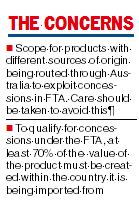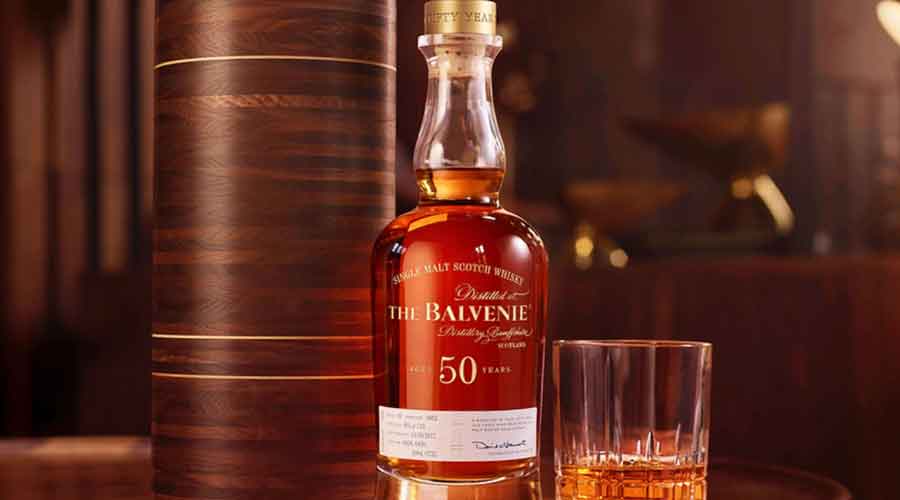Scotch whisky players in the country pitched for rules of origin to protect the domestic industry and prevent misuse of trade pact by a third country, as the Australian minister for trade, tourism and investment Dan Tehan arrives here to hold discussions on free trade agreement.
Tehan is scheduled to hold discussions with commerce minister Piyush Goyal and speed up the process of an interim trade deal. Sources said the commerce ministry officials have held consultations with stakeholders to understand sensitivity of Indian industry to different products.
The Confederation of Indian Alcoholic Beverage Companies (CIABC) has informed officials that adequate care should be taken to ensure that third country products are not able to take advantage of the pact with Australia. “In order to qualify for concessions under the free trade agreement (FTA), at least 70 per cent of the value of the product must have been created within the country it is being imported from,” CIABC told the ministry.

CIABC director-general Vinod Giri told The Telegraph that “if an alcoholic product is a GI-tagged such as Scotch, champagne or tequila, the GI-linked country should be the origin for the purpose of tariff rate, regardless of where the shipment is coming from.”
There is a significant scope for products with different sources of origin being routed through Australia, or any other country, to exploit concessions in FTA unless specified in the rules.
Giri pointed out that Singapore and UAE do not manufacture alcohol but are a significant source of origin for imports for alcoholic beverages into India. He added that India should insist on Australia removing non-tariff barriers on Indian exports such as not accepting whiskies made from spirit distilled from molasses, which is a common practice in India.
Australia should also stop insisting on a three-year maturity for whisky as in warm Indian climate whisky matures three times faster, and in three years’ time loses around 30 per cent volume due to evaporation.










